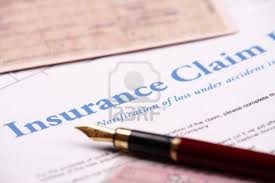
Having been in the trenches for quite some time as a Miami Insurance Lawyer, here are some useful and simple tips for maximizing the chances of recovery in your Florida insurance claim:
- Report Your Claim As Soon As Possible. Florida law and your insurance policy require that you timely report your claim to the insurance company. Make that call as soon as you discover damages. This allows the insurance company to document that you are making a claim right away. That early claim call also gives the insurance company the opportunity to investigate the damages and their cause. You should not wait to call the claim in while you do your own investigation. You will have plenty of time after you make the initial claim call to hire contractors, adjusters, lawyers, and secure estimates, photos, and expert opinions.
- Take Pictures and Video. Document your claim by taking pictures and video of the damages. When documenting the damages, be sure to get different perspectives of the damages, both close-up and an overview of the room/location where the damages are located. If you can, be sure to put a time and date stamp on your pictures and video. Remember, the star of your photos and video should be all of the damages, make sure you can actually see them by using proper lighting and distance. Finally but just as important, take pictures and video of the cause of damages while it is happening if possible. That means, if a storm or leaky pipe has caused damages, try to get pictures and video of the storm or of the leaky pipe. If your home was flooded out, get pictures and video of the actual water on the floor.
- Make Temporary Repairs to Stop Additional Damage. You will need to mitigate your damages which simply means you need to stop additional damages from taking place. You cannot stand by and let your property become further damaged under you watch if you could have prevented the same. For example, put a tarp on a leaky roof, turn off the water and repair that broken pipe, remove excess water from the home before it damages other areas or causes mold. Taking pictures or video of your temporary repairs will help prove that you did all that you could to stop further damage.
- Create a Claim Diary. Since memories fade and to assist you later in recalling the events, create a written diary of what took place during your claim. Create the diary as soon as possible and begin each entry with a date, time, location and the people involved. Your first entry should document when you first observed the damages, what you saw, what you believe caused the damages, and what you did in response to the discovery. Every entry after that should note any further observations, meetings, or conversations regarding your claim.
- Obtain Repair Estimates. You will need to know what it will cost for a real licensed contractor to repair your damages. This is needed in order to evaluate whether the insurance company’s estimate is fair and reasonable. Do not assume that the insurance company has your best interests in mind during the claims settlement process. More often than not an insurance company estimate either fails to address all the damages or undervalues the cost of materials or labor for the repairs.
- Create a Receipt File. To properly document your damages, you will need to hold on to and produce those receipts you have for the damaged property. The needed receipts could include those you were given for temporary repairs (plumbers), supplies for making repairs, and the original receipts for damaged personal property (furniture, electronics, etc.). In the end it is your burden to prove that you either incurred expenses for repairs or owned property that was damaged so it is very important to have receipts or photos for it all. This is incredibly important when there is a theft or fire claim and you can no longer show the property to the insurance company. A good practice is to make an inventory of your possessions that would include receipts and photos before you even have an insurance claim. Scanning all of this and keeping it digitally in a safe place or online is a good practice.
- Respond to Your Insurance Company. You have a duty to assist your insurance company during its investigation of your claim. As such, be sure to return all telephone calls to the insurance company and to open/respond to all of its letters to you. Assist the insurance company with all of their reasonable demands for inspections, interviews, and document requests. If you feel uncomfortable with the requests being made upon you by the insurance company, consult immediately with a Florida insurance lawyer for advice and help. You have the right to have legal counsel and you also have the right to have your lawyer present during any interview, recorded statement, or examination under oath. Further, you have a right to not disclose irrelevant confidential or financial information. Insurance companies can tend to be invasive when it comes to their demands and they sometimes seek tax returns, bank statements, credit card statements and telephone records. These requests must be evaluated by your legal counsel to protect your rights, simply do not refuse to produce and give the insurance company another reason to deny your claim. Ignoring these request will be at your own peril and you really should obtain a Florida insurance lawyer to help you if you feel your privacy rights are being threatened.
- Hire a Florida Public Adjuster. From the beginning, a licensed Florida Public Adjuster can give you the confidence and advice for how to proceed with your claim in order to maximize the chances of a proper recovery. A proper recovery means getting paid everything that you are owed in terms of scope (what is covered) and cost (damages). Unless you are a seasoned insurance adjuster or have handled many claims on your own, seek the proper help you need from the start. You would not perform surgery on yourself, so don’t handle an insurance claim for your most prized possession on your own. Only a Florida Public Adjuster can tell you what the proper damages are for your claim. Do not rely upon the insurance company to tell you what you are owed. Figure it out on your own and fight for it.
About the Author: Patrick Russell, Esq., has been a member of The Florida Bar since 1994 and is an experienced Florida insurance lawyer. Patrick started his insurance law practice more than twenty years ago when he represented homeowners and business owners for their Hurricane Andrew insurance claims. The purpose of this article is educational and not for the solicitation of legal services. The goal is to avoid the mistakes learned from the past, specifically those from previous windstorms. Knowledge is power. Information is free. Mistakes are costly. If you would like more tips on how to process your Florida insurance claim, Patrick can be reached at (305) 608-2977 or here.







